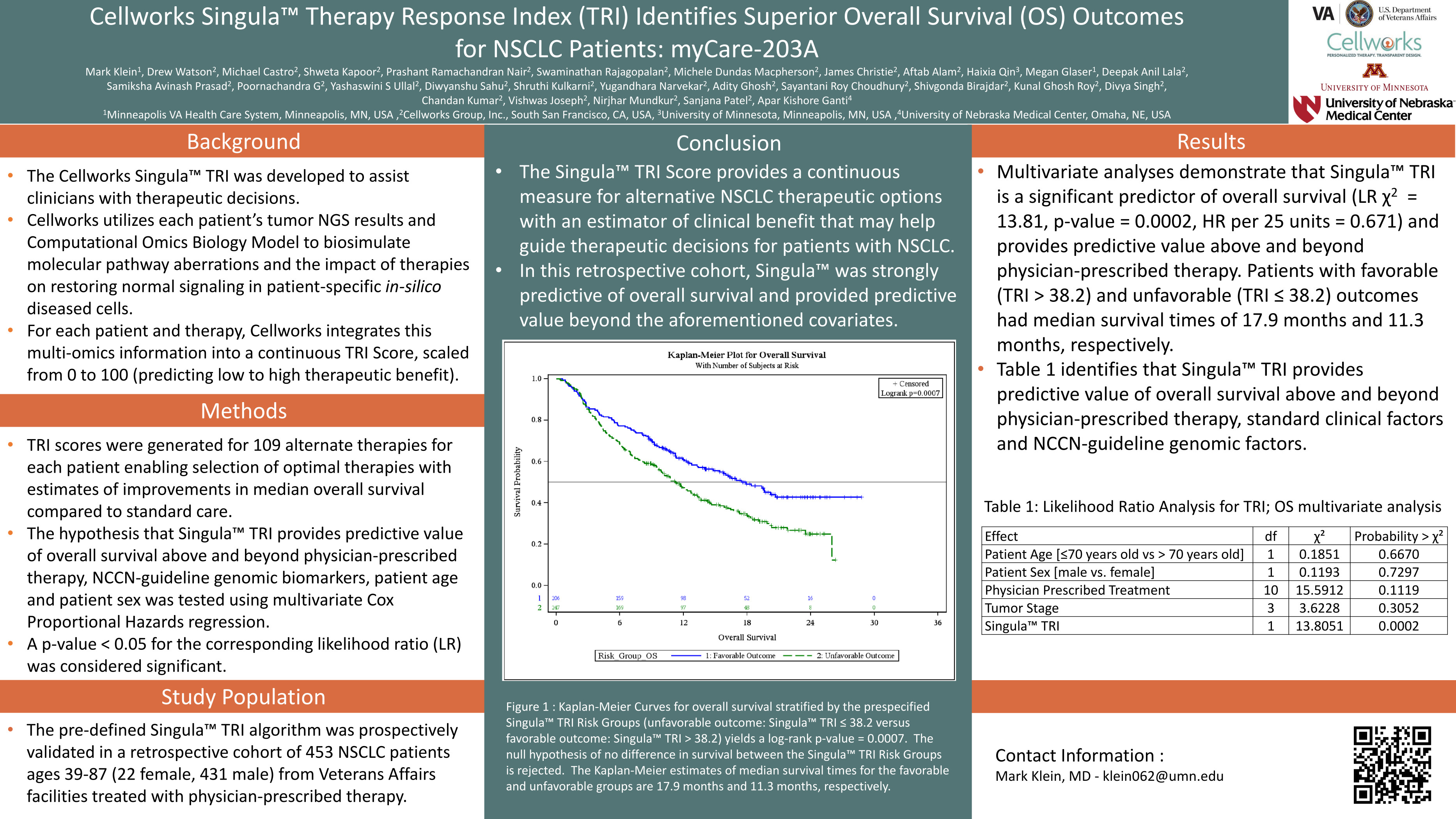Personalized Therapy Biosimulation Using Multi-Omic Data Accurately Predicts Clinical Outcomes for GBM Patients
Researchers around the world are exploring different approaches to improve our understanding of cancer. The growing need to understand the molecular mechanism of cancer genesis and progression has led to large-scale studies, like the National Institutes of Health Pan-Cancer Atlas, which is aimed at finding tissue-agnostic approaches to treating cancer. Tissue agnostic approaches where the initial genesis of cancer occurred do not impact the techniques used and are central to Cellworks biosimulation methodology.
2020 : Superior therapy response predictions for patients with pancreatic cancer (PDAC) using Cellworks Singula: myCare-009-05.
Model (CBM) to predict therapy response and identify novel biomarkers for 5FU-based combination therapy in gastric cancer patients.
2021 : Superior overall survival (OS), progression-free survival (PFS), and clinical response (CR) predictions for patients with non-small cell lung cancer (NSCLC) using Cellworks Singula: myCare-022-05.
Predictions of Overall Survival (OS) and Progression-Free Survival (PFS) for specific therapeutic interventions in newly diagnosed Glioblastoma Multiforme (GBM) Using Cellworks Singula™: myCare-024-04.
Cellworks Singula™ Therapy Response Index (TRI) Predicts Overall Survival (OS), Disease- Free Survival (DFS) and Tumor Regression Grade (TRG) for Oesophageal Adenocarcinoma: myCare-004





